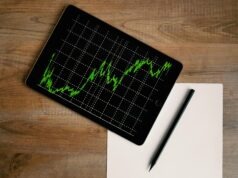
In the bustling world of foreign exchange, the market not only has its own rhythm but also its own language. This vibrant vernacular forms a secret lexicon that can mystify the uninitiated and serve as a badge of honor for the veterans. Traders around the globe converse in this cryptic currency cant, a shorthand that encapsulates complex trading concepts into colloquial gems. Here’s a glimpse into the fascinating world of Forex slang, where even the vaunted ‘Forex Gods’ have a special place in the traders’ tongue.
Bulls and Bears: The Market’s Totem Animals
Walk into the Forex forest, and you’ll immediately hear talk of ‘bulls’ and ‘bears’. These are not the fauna of the field but the totem animals of the market. ‘Bulls’ are traders who charge ahead, pushing prices up with optimism, their horns aimed high. ‘Bears’, on the contrary, claw prices down, embodying market pessimism. Your trading strategy may align with one of these spirits, guiding you through the wilds of market trends.
Pips and Points: The Beat of the Market Drum
The heartbeat of Forex trading is measured in ‘pips’ and ‘points’, the smallest increments of price movement. A ‘pip’, or “percentage in point”, is like the drummer in a band, setting the tempo for profit and loss. Traders often speak of ‘picking up pips’ like a forager gathers fruit, each one adding to the basket of gains or the burden of losses.
The ‘Cable’: A Transatlantic Connection
Ever heard of the ‘Cable’? In trader talk, this isn’t something you plug into your TV. It’s the slang for the GBP/USD currency pair, a term that harks back to the 19th century when exchange rates between the US dollar and British pound were transmitted across the Atlantic by submarine telegraph cable. Today, it signifies one of the most traded currency pairs in the world, maintaining its historical nickname.
The ‘Forex God’: Myth or Mastery?
Amidst the coded chatter of traders, the Forex God is an entity of mythical proportions. This term is bestowed upon traders who seem to command the market with divine prowess. To be a ‘Forex God’ is to have an almost otherworldly insight into market movements, turning predictions into profits with a command that mere mortals can only aspire to. While the title may be tongue-in-cheek, it encapsulates the respect afforded to those rare individuals who ride the tumultuous waves of Forex with consistent success.
‘Loonie’ and ‘Fiber’: Currency Characters
In this marketplace menagerie, every currency pair has a persona. The ‘Loonie’ is the playful nickname for the Canadian dollar, a reference to the aquatic bird on the one-dollar coin, while the ‘Fiber’ denotes the Euro, possibly referring to the currency’s newness or the synthetic nature of its creation. Traders might talk of the ‘Loonie’ flying high or the ‘Fiber’ getting tangled during a day’s trade, adding character to the numbers.
‘Going Long’ and ‘Shorting’: The Trader’s Leap
‘Going long’ in Forex does not involve a running start, but it’s definitely a leap of financial faith. It means buying a currency pair with the expectation that it will increase in value. Conversely, ‘shorting’ a pair means selling it off, anticipating a fall. These leaps are part of the trader’s daily acrobatics, each one a calculated risk in pursuit of reward.
In Conclusion: Speaking the Language of the Forex Tribe
The jargon of Forex trading is more than just slang; it’s the language of a global tribe. From ‘bulls’ to ‘bears’, from ‘pips’ to ‘points’, the language reflects the dynamic and unique environment in which traders operate. The ‘Forex God’ may be the stuff of legend within this lexicon, but understanding the colloquial currency of Forex can elevate a trader from novice status to a seasoned speaker. To trade in Forex is to navigate not only the market but also the language that encapsulates its essence. Embrace the lingo, and you’re one step closer to mastering the market’s melody.


































